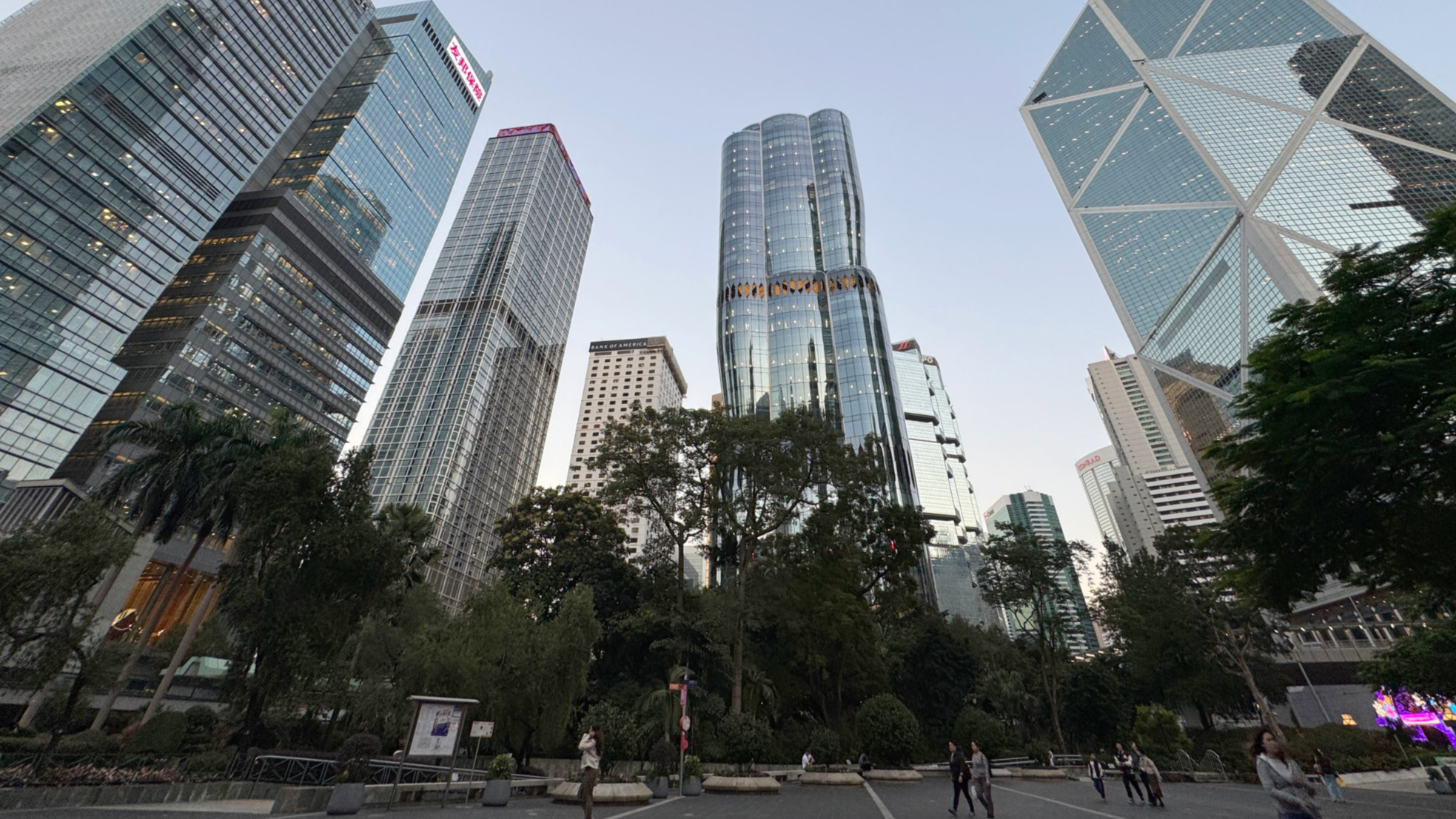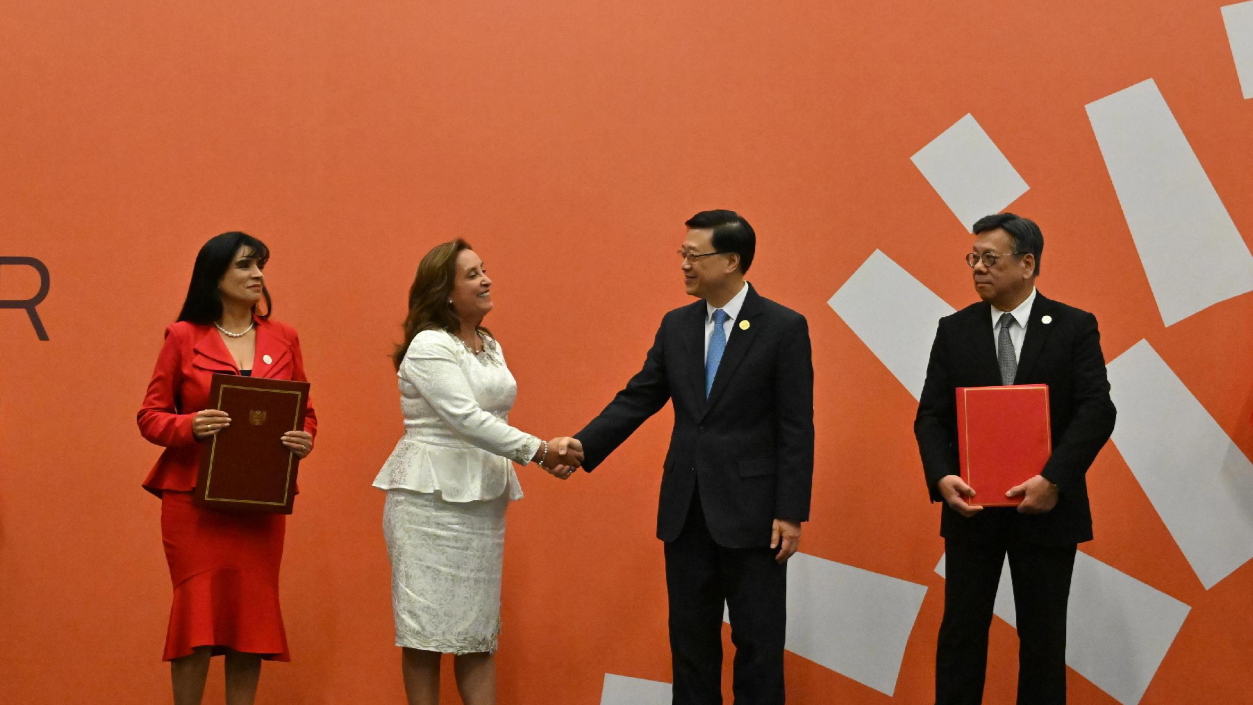
Hong Kong Chief Executive John Lee Ka-chiu on Tuesday pledged to expand free trade cooperation with more economies and use the special administrative region’s robust professional services to shelter enterprises seeking risk diversification amid the uncertainties created by the United States’ “reckless” tariff hikes.
The US imposed higher tariffs on its major trading partners, including China, the European Union and Japan, last week, pushing trading taxes on the Chinese mainland and Hong Kong to 54 percent.
Speaking ahead of the weekly Executive Council meeting, Lee denounced the US’ “bullying and barbaric” moves that have undermined trade rules the world has collectively drawn up, creating substantial risks for the global economy and disrupting supply chains.
He warned this could lead to trade contraction and trigger inflationary risks, ultimately damaging the multilateral trading system and slowing down globalization.
ALSO READ: CE: HKSAR govt to protect national security fearlessly
Although the SAR, as an externally oriented economy, will inevitably be affected in the short term, particularly its small and medium-sized companies, e-commerce firms and logistics sector, Lee said the impact of the tariffs has been weakened by declining Hong Kong-US trade.
The US’ market share of Hong Kong’s total exports of goods shrank from 8.6 percent in 2018 to 6.5 percent last year, while the share of the Association of Southeast Asian Nations (ASEAN) climbed from 7.4 percent to 8.7 percent, ranking second only to the Chinese mainland, Lee said, adding that ASEAN displaced the US in 2019 as Hong Kong's second-largest export market for goods.
Lee stressed that Hong Kong residents, renowned for their business acumen, flexibility, and resilience, can overcome challenges, adding that the SAR government will introduce a range of initiatives to tackle the changing economic landscape.
He said the government will step up free trade negotiations with more economies and strengthen regional collaboration to expand the city’s business and trade network in emerging markets such as ASEAN, the Middle East and other economies taking part in the Belt and Road Initiative.
Hong Kong has signed free trade agreements with 21 economies and investment treaties with 33 economies. Lee said Hong Kong is discussing investment pacts with Saudi Arabia, Bangladesh, Egypt and Peru, and is striving to join the Regional Comprehensive Economic Partnership – the world’s largest free trade agreement. The SAR government plans to open trade offices in Saudi Arabia and Malaysia. To better liaise with local communities, the city’s investment promotion body — InvestHK — recently set up offices in Egypt and Turkiye, and the Hong Kong Trade Development Council opened a new office in Cambodia.
The chief executive said the SAR can shelter more global companies seeking to diversify risks amid the uncertainties through its robust professional services and step up support to local firms.

As one of the world’s freest economies, Hong Kong can provide a safe and stable investment environment under “one country, two systems”, and enjoy an in-depth connection with the mainland’s huge market, giving the city an irreplaceable advantage in asset hedging, including the development of family offices, asset management and risk management, Lee said.
He added that the authorities will continue to provide capital assistance to support Hong Kong enterprises in brand development, upgrading and transformation, and expanding into new markets.
Hong Kong should also capitalize on the nation’s development opportunities brought by a domestic market of 1.4 billion people, Lee said, adding, “The country is Hong Kong's greatest opportunity, and also the greatest certainty.”
Taking the Guangdong-Hong Kong-Macao Greater Bay Area as an example, Lee said the 11-city cluster has a population of 87 million and a $40,000 gross domestic product per capita in purchasing power terms.
READ MORE: Mega events, CEPA to further boost HK economy
Hong Kong business should connect more actively with the strong domestic demand and expand the sales of products to more regions on the mainland, Lee added.
As the only city enjoying the advantages of both the Chinese mainland and the world, Hong Kong must continue to uphold liberal policies to get more international enterprises to invest in Hong Kong, and capitalize on the opportunities locally and within the country, he said.
Contact the writer at atlasshao@chinadailyhk.com


